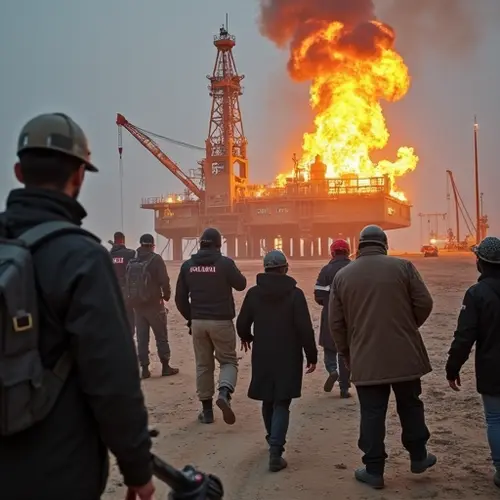
European Gas Prices Surge Due to Middle East Tensions
The escalation of tensions between Israel and Iran has led to a further increase in European gas prices. Traders are particularly concerned about potential disruptions to energy supplies via the Strait of Hormuz, a critical route for oil and gas shipments from the Middle East.
Impact on Gas Markets
While liquefied natural gas (LNG) deliveries continue for now, the risk of disruptions remains. These concerns coincide with Europe's refilling season, during which countries replenish their gas reserves for winter. Since 2022, EU member states have been required to fill their gas storage to at least 90% capacity by November 1.
Price Trends
On Monday, the price for a megawatt-hour rose by 1.81% to €38.58 on the leading European gas exchange in Amsterdam. This marks a reversal of the recent downward trend in gas prices, which had been influenced by concerns over U.S. trade policies. Since the start of the trade war, prices had fallen by approximately 15%, allowing European nations to replenish reserves at relatively low costs.
Oil Prices Also Affected
Oil prices are also on the rise, with a notable 8% increase following Israeli strikes on Iranian military and nuclear targets. The mutual attacks over the weekend have heightened fears of a broader conflict in a region responsible for a third of global oil production. Earlier, oil prices had been under pressure due to disappointing economic data from China and increased production by OPEC+.
Domestic Impact
The higher oil prices are already affecting consumers, with the recommended price for a liter of Euro95 gasoline in the Netherlands rising by 0.6 cents to €2.11.

 Nederlands
Nederlands
 English
English
 Deutsch
Deutsch
 Français
Français
 Español
Español
 Português
Português